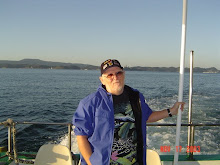For several years I have tinkered with other modes in Ham Radio from SSB, CW, and recently what we call the digital modes. Which is tones being sent via radio from one part of the world to the other with a computer via a radio interface like that of a Modem through software via various tech writers and off to another computer on the other side of the world.
Most of the information can be found from various websites who can help you get started., either you can do a Google or search the various sites, you even have a chance to witness it on youtube. Just type JT65hf or PSK31. And you will see alot of the subject.
I first did PSK31 after seeing a demo of this at the San Diego Six shooters Ham Club in San Diego
check out the following sites for these modes.
JT65A HF Frequencies
VFO FREQ
- 28076.0 kHz USB
- 24920.0 kHz USB
- 21076.0 kHz USB
-
18102.0 kHz USB
* 14076.0 kHz USB
* 10139.0 kHz USB
- 7036.0 kHz USB
- 7039.0 kHz USB
- 7076.0 kHz USB
- 3576.0 kHz USB
- 1838.0 kHz USB
- 1805.0 kHz USB
JT65A signal is normally about +1.3kHz to +1.5kHz higher than the VFO frequency.
Proposed frequencies for PSK31 QSO
- The plan for PSK31 activity has always been (since PSK31 started) to concentrate activity starting from the bottom edge of the IARU RTTY bandplan, expanding upwards as activity increased. The exception is in the 10mts band in order to give non full privileges ham to meet. It was defined as 150 Hz above it. Keep in mind that all you need is about 100 Hz as channel separation.
- These recommended frequencies are in accordance with the IARU bandplan for region 1. There may be differences for regions 2 and 3
1838.150
3580.150
7035.15 for region 1 and region 3, and 7080.15 for region 2 *
10142.150
14070.150
18100.150
21080.150 (although most activity can be found 10 kHz lower)
24920.150
28120.150
* This is due to the fact that the 7 MHz band is much wider in region 2 (the Americas), and the IARU bandplan reflects this.
Subscribe to:
Post Comments (Atom)


No comments:
Post a Comment